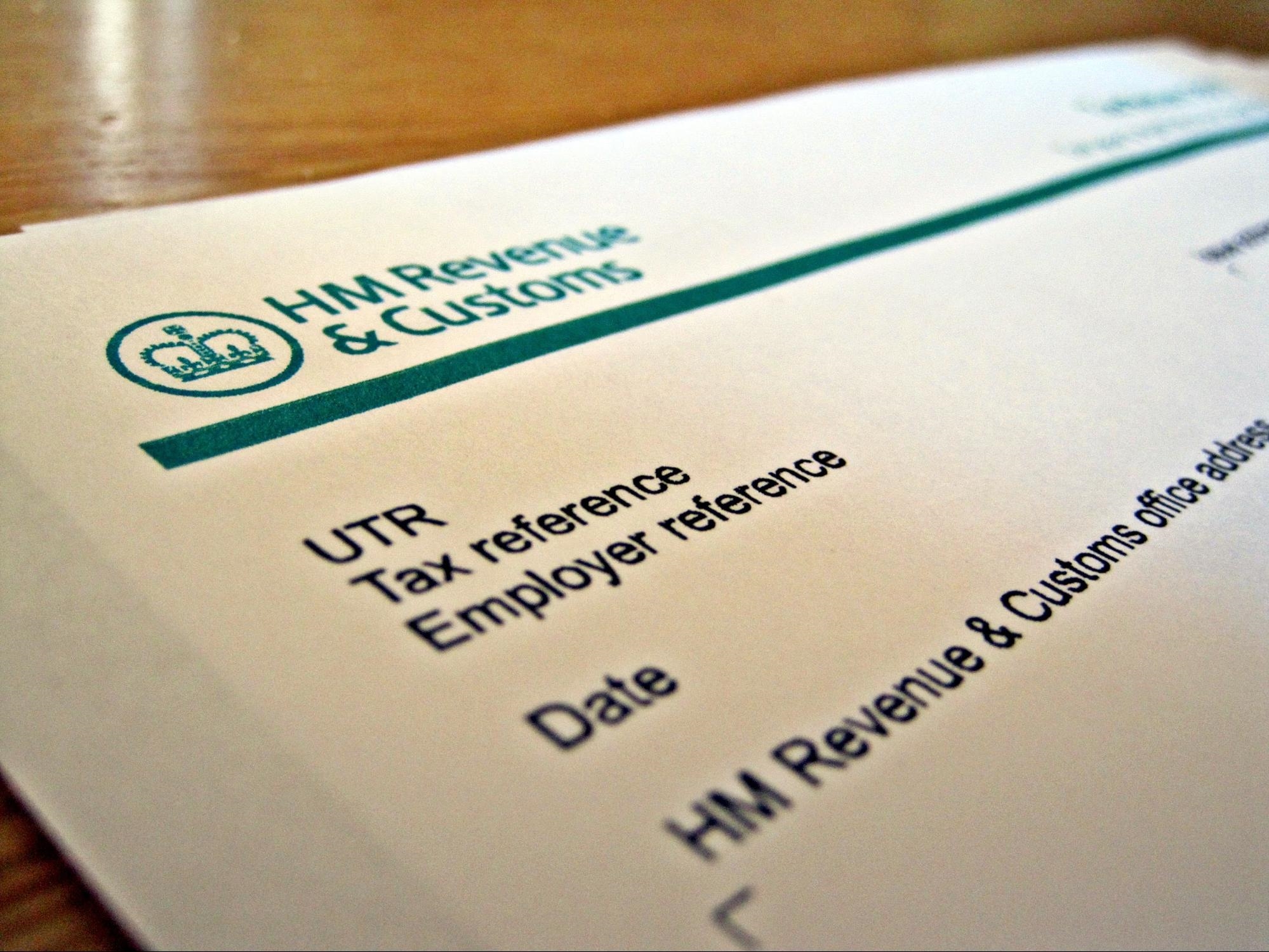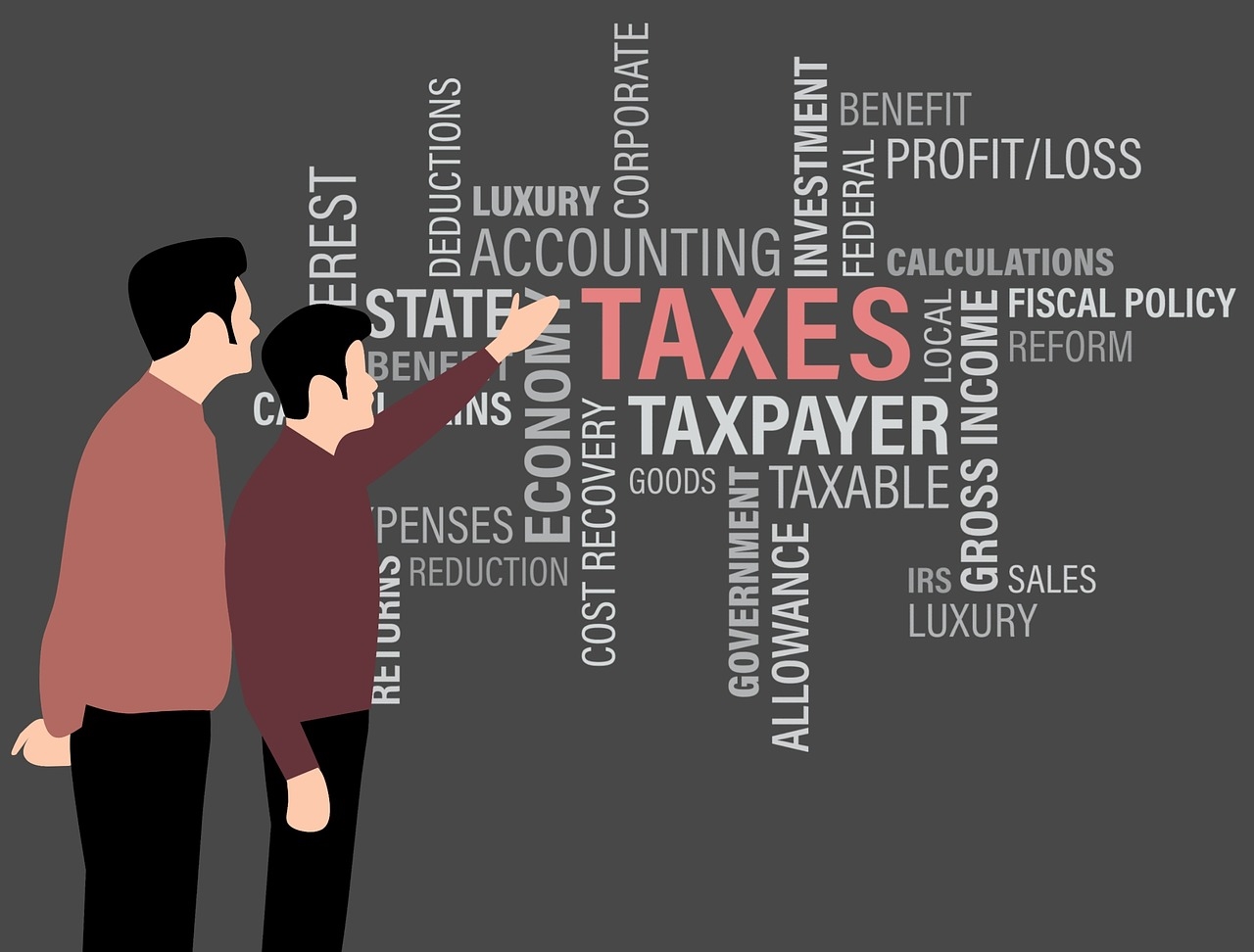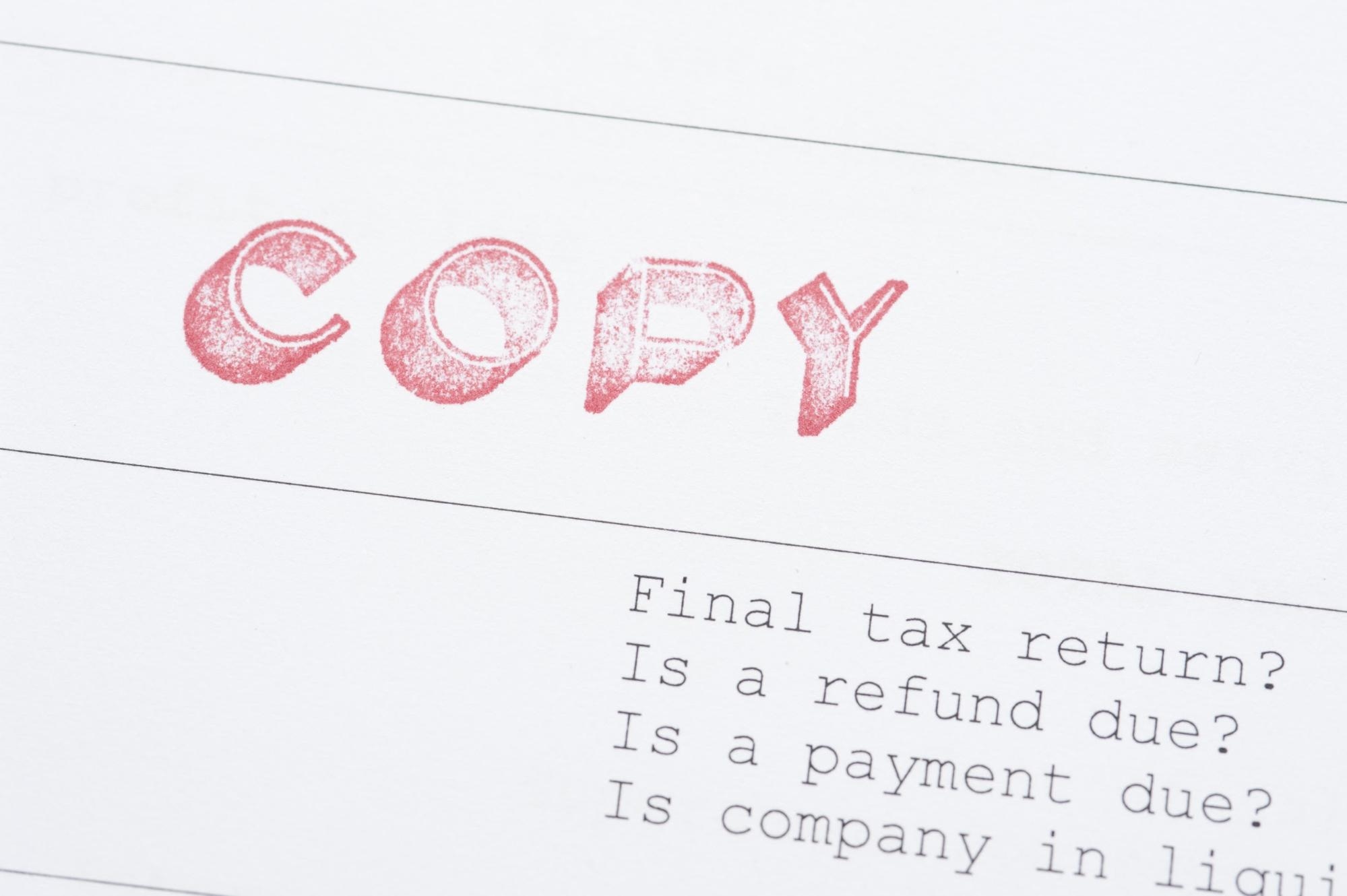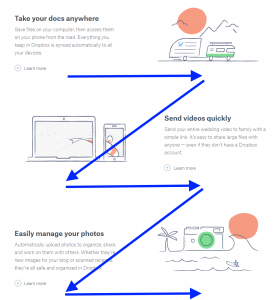There are, as the old saying goes, only two certainties in life: death and taxes. Whether you specialize in digital PR or you’re running a small online retail business, you need to understand the tax arrangements that apply to you and how they work.
While we’re all wondering what the future might hold for e-commerce after Covid-19, amid all the upheaval it’s oddly reassuring to be reminded there are some things that remain constant.
But, tax arrangements can vary widely between different jurisdictions. So, if you’re going to be selling overseas – and as we live in a globalized economy, this is something no online business can afford to neglect – you need to get your head around this.
Of course, there’s no shortage of things to do in order to get your business up and running. From finding the right warehouse management system to inventory accounting, whichever industry you’re in, you’ll have your hands full. Whatever else you have to juggle, however, you must have a solid understanding of the tax obligations to which you’re subject.
This doesn’t just impact those businesses selling physical goods to customers domestically and in other countries. It also applies to those selling services. If you’re selling software as a service (SaaS), you need to understand how different tax regimes in different markets will apply to you.
If you’ve not properly considered the implications of tax in the markets in which you’re operating, your business could end up paying a heavy price – reputational and financial.

In this article, we’ll guide you through some of the thorniest questions relating to business taxes as they affect SaaS firms. We’ll cover the major jurisdictions where your business might find itself trading. By providing you with this overview, we’ll hopefully help you get a clearer understanding of the requirements you’ll be faced with.
We’ll discuss the fundamentals of paying sales taxes and how they apply to SaaS examples. We’ll also discuss tax thresholds in different jurisdictions, look at what you need to know with regard to accounting and compliance, and talk briefly about filing tax returns.
This may all seem a little daunting at first glance. The most important point to bear in mind, however, is that there’s no reason why your business shouldn’t continue to prosper whatever the various tax regimes have to throw at you.
Once you’re equipped with a proper understanding, you should be able to adapt and adjust your business so that it thrives in spite of its tax obligations. So, let’s get started.
Understanding the basics
It’s always wise in these situations to start by addressing the first things first. There are many common misconceptions with regard to tax, including among people who you’d assume might know better. There’s no shame in this, of course. It just goes to show that taxation can be quite a fiendish thing to get to grips with.
One misconception is that you don’t have to concern yourself about paying tax so long as you’re not setting up bricks-and-mortar premises in the jurisdiction in which you’re trading. This is most emphatically not the case. If you’re selling goods or services in a particular market, you will be liable for charging sales tax or VAT there.

And that’s not all. You could find that different tax rates and requirements apply in different areas of the same country. For example, in the USA, the federal government might levy a sales tax, while states have their own. Some states, meanwhile, don’t have their own sales tax at all.
You can see, then, how a lot of people might find this confusing. This is why you need to thoroughly research the requirements in whatever market you’re trading.
There’ll also be different aspects of tax requirements to consider. These will include when to file tax returns (annually, quarterly, bi-monthly, monthly, and so on), which evidence you’ll need to provide when filing, and the currency you’ll be paying your sales taxes in.
Is SaaS taxable?
If you’re selling SaaS products, these will be subject to taxation. Exactly how they’re taxed will vary from country to country. You need to do your research about any market you’re planning to enter before you start trading there.
SaaS is considered a type of digital good, but this is quite a broad category and different items will be taxed accordingly. Again, this can vary quite widely in different markets and this is something you must understand.
But, having said that, the term ‘SaaS’ is itself used quite freely and not always with much attention to accuracy. It pays, then, to start by working out whether the service your business is offering can be genuinely categorized as SaaS.
In a nutshell, SaaS refers to cloud-based computing services provided to clients on a subscription basis; for example a virtual office phone service or a retail ERP system. If this is the kind of service you’re providing, then, it’ll be subject to the taxation levels and requirements set by the authorities in the relevant jurisdiction.
In the European Union, software is classed as a digital good, and so SaaS is taxable on these grounds. Digital goods are IT-based, intangible (i.e. not physical) goods provided via the Internet or other electronic network, and which are either automated or have minimal human involvement.

In the United States, things work slightly differently, as we’ve already alluded to. Existing tax definitions don’t have specific stipulations for SaaS, which means that obligations vary from state to state. As SaaS products are delivered via the cloud, they’re not considered ‘tangible goods’ and hence don’t fall within the scope of current US tax definitions.
However, some states do regard SaaS as equivalent to electronically-downloaded software, and so subject it to taxation. Others regard it as a service, and as some states don’t tax any services, they may not tax it at all. It goes without saying that this doesn’t necessarily make life easier for businesses simply trying to do the right thing wherever they trade.
SaaS continues to grow as a market and in public prominence. As such, it does seem like a reasonably safe bet that many of those jurisdictions (in the US and elsewhere) that don’t currently tax it, soon will. Some of those that already do tax SaaS products can likewise be expected to revisit their taxation arrangements where they feel these need changing.
But the fact that a country levies taxes on SaaS products doesn’t necessarily require you to add the tax to your own sales. Other factors might come into play. For example, how much your business is selling, where your business has its primary base, how you sell your products (i.e. the methods you use), and more.
Tax thresholds
Following on from our discussion in the previous section, then, it’s of the utmost importance that you understand how tax applies to SaaS in different places. It’s only then that you can work out what your business needs to do in order to remain compliant.
We’ve already discussed some of the factors that can vary from place to place. Another is the taxation threshold that applies. Clearly, if your business is doing well, then the government (wherever you happen to be) will demand some taxation. But, if you’re only making small amounts, the chances are that you won’t meet the threshold and thus won’t have to pay tax on your earnings or register to pay tax.

In the European Union, however, the tax registration threshold for SaaS is set at €0. So, if you’re selling any SaaS products within the trading bloc, you’ll need to register. By contrast, in Australia, the threshold for the country’s general sales tax is AU$ 75,000. That means if you’re generating Australian sales below that total, you don’t need to register.
Another point to bear in mind is that ‘economic nexus’ rules in the United States have changed in recent years, following a Supreme Court judgment. Prior to June 2018, there was no requirement to register for sales and use tax in a particular US state unless you had a ‘physical nexus’ in the state. I.e., a physical presence in the form of premises, staff, or freelance contractors.
This has changed so that ‘economic nexus’ rules prevail instead. The economic nexus takes the form of a tax threshold, commonly US$ 100,000 within the duration of a financial year, or a certain number of transactions (usually 200 where this applies).
Accounting and compliance tips
If you’re going to ensure tax compliance, you need to get your accounting methods right. This is crucial to help you understand what you’ve got coming in and how much you’ll owe to the tax man come the end of the financial year.
We’ve already discussed the inconsistencies and grey areas involved in SaaS taxation. That means the best thing you can do is be proactive to help you stay out of trouble further down the line.
So, if you’re expanding into a new market, you need to make sure that your tax planning takes adequate account of this. If you’re taking on new tax liabilities in new areas, you need to plan accordingly.
Of course, it’s entirely natural to be ambitious and to want to take on new challenges in new markets, especially if things are already going well. A lot of businesses, though, forget to scale up their tax planning in tandem with this expansion.

You also need to think about what it is you’re selling. Are you selling complementary services to go alongside your primary product lines? If so, you’ll need to allocate revenue according to the stand-alone prices and fees that apply.
You should also avoid recognizing revenue up front as this can cause problems later on. Should a customer exit their contract ahead of schedule, for instance, you may be left with a financial shortfall.
Perhaps most importantly, you must ensure you keep on top of any changes in the relevant tax rules and requirements. We’ve noted already that a lot of countries and states are still getting to grips with SaaS, as it’s a relatively recent phenomenon.
We can expect, then, that taxation rules will continue to evolve and change. So, if you’re trading in a market that currently doesn’t tax SaaS products, you should be prepared in case that changes.
That said, as SaaS becomes more established, the pace of change to the applicable tax requirements should start to slow. But that’s likely to be some way off yet. You should, therefore, keep in close contact with your accountant so that you’re alerted to any changes to taxation that might be coming your way.
Filing tax returns
Tax returns will work in different ways, depending on the jurisdiction. You need to understand what’s required of you in the various territories in which you’re trading. Work out how frequently you’re required to file tax returns. Then, explore what the deadlines for filing are, and what sort of a breakdown the authorities will expect you to provide.

The ways in which you submit your tax returns may also vary depending on where you’re selling products and services. Some countries and states will allow you to file tax returns online (indeed some actively encourage it to help them cut down on paperwork). Others, meanwhile, still require you to send in physical paper forms.
Be sure to consult a specialist – an accountant or another taxation expert – ideally based in the relevant jurisdiction to help you understand what’s required of you. It’s a lot to take on by yourself, and a helping hand can come in very useful in these situations. It could potentially save you a lot of hassle later on.
Conclusion
Hopefully this guide has given you a clearer idea of what’s likely to be required of you when you’re selling SaaS products in different markets around the world. It might sound like a lot to take in – and we’ve only scratched the surface here. Businesses large and small, though, trade and pay tax globally every day of the week. There’s no reason doing so should be beyond yours.
There’s a lot of uncertainty around at the moment, and many of your clients will be getting to grips with the new normal. Online retailers may be grappling with new inventory management requirements so that customers don’t end up being confronted with out of stock product pages, for instance.
The SaaS services you provide can play a valuable role in helping these clients adapt to changed circumstances, and ensuring ordinary consumers don’t end up disappointed.

To keep providing your invaluable service, it’s essential you recognize what’s required of your business when it comes to tax. That way, you can remain fully compliant with the applicable tax laws in the markets where you trade.
Fortunately, there are specialists who can keep you abreast of any relevant changes to tax regimes. Automated tax software, too, can also greatly simplify the process. This can help you concentrate on what you do best: providing top-quality services and exceptional products.
Business & Finance Articles on Business 2 Community
(63)





